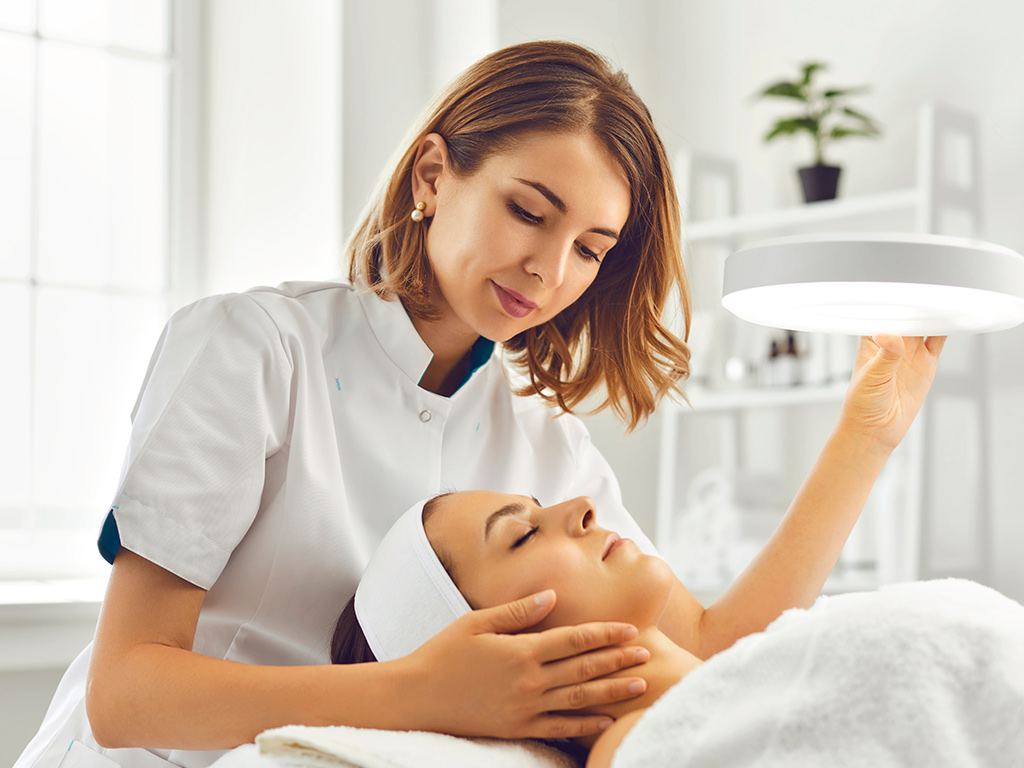
The effectiveness of the products might reduce if the reasons for acne change. For example if you’re someone with open pores and a combination skin, it is given that you might face acne outburst. But even after taking care of your acne you realize that it is just increasing, the reasons might differ now. It could be anything, ranging from a hormonal imbalance to a genetic condition.
So when 6 weeks of acne turn into 12 weeks and then into months, that becomes concerning. This is usually one of the major signs that you need to visit a dermatologist when acne occur and stay for prolonged duration.
Before visiting the doctor, do a self-assessment and note down the journey of your breakout. Did you eat something that worsened the acne like diary or sugar items? Did you check the list of ingredients in a product to see if it is non-comedogenic?
Has your family has a history of acne that comes in control after a certain age or due to a certain remedy?
Learning the patterns of acne can also help your doctor understand you better. Make a note of the acne and your habits and diet around the same time period.
Here are some factors that hint towards you visiting a dermatologist for your acne soon
Yes prolonged acne is one of the major reasons but painful acne is something that you shouldn’t ignore. Cystic acne usually is extremely painful and can bleed making the skin around it sore. This causes a lot of discomfort and hey you really don’t need to go through it. Your doctor will recommend the best treatment suitable for you.
Acne can lead to a host of issues that can mentally and emotionally affect you. If you catch yourself refraining from being a part of crowds and avoid venturing out without a scarf or going out at all. Then it is time you better your acne condition with your doctor and free yourself to heal better.
Acne can make one desperate to treat it by hook or by crook. This means trying different trends, routines, homemade remedies, online suggestions and still landing up with a breakout days before a special occasion. Let the experts work their magic and give you a solution that best fits your skin.
Okay finally the products you did try work but didn’t fade your acne marks? That’s a tough one. It’s like a lingering reminder of acne and we don’t want that. So to figure out if it's actually a mark or a scar, we suggest you visit a doctor and do what’s best for your skin. While you can still treat acne marks, a.k.a., the flat and hyper-pigmented spots, acne scars that cause irregular bumps/indents on the skin are a lot harder to treat.
These are some really extreme cases and they do require medical intervention. But you’re not there yet and still figuring out a product that is non-comedogenic and safe for the skin, try AcneStar range of cleansers and gel that is formulated by AcneStar Research Institute to help teens tackle acne and become acne-free.
So remember to notice your acne journey and remember to visit the dermatologist when it’s required and necessary.
Disclaimer This blog solely intended for the educational/informational/awareness purposes and is not a substitute for any professional medical advice, diagnosis or treatment. Please consult your doctor/healthcare professional before acting on the information provided on the blog. Reliance on any or all information provided in the blog, is solely at your own risk and responsibility. Mankind Pharma Limited shall not be held liable, in any circumstance whatsoever.

Acne is a skin condition that occurs when your hair follicles become plugged with oil and dead skin cells.

it is absolutely imperative to know its type. Acne can be inflammatory or non-inflammatory which further has different lesions, as mentioned below.

Acne starts occurring in teenagers due to an increase in the level of Androgen production. Androgen is a hormone which signals the body to produce more sebum, the oil produced by the sebaceous glands.

Acne is a skin condition that occurs when your hair follicles become plugged with oil and dead skin cells. It often causes whiteheads, blackheads or pimples, and usually appears on the face, forehead, chest, upper back and shoulders. Acne is most common among teenagers, though it affects people of all ages.

Debunk acne myths by following a proper skincare regimen. Taking good care of your skin can help you achieve a glowing and acne-free skin.